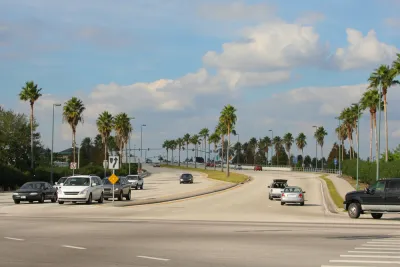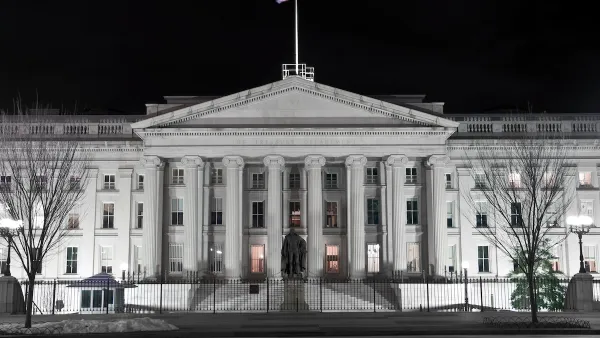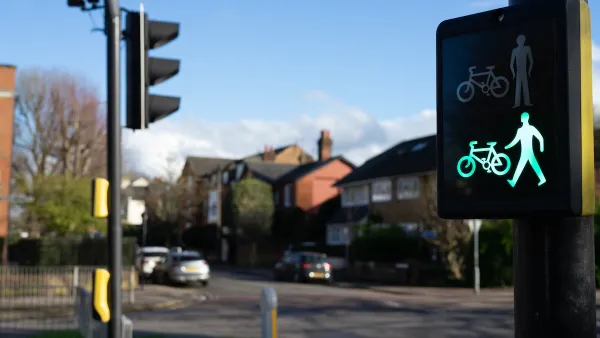Jeff Speck, author of Walkable City, argues that reducing the width of traffic lanes would be a panacea for the disastrous public health outcomes of traffic safety.

Jeff Speck makes a strong statement in an article for CityLab: "the single best thing we can do for the health, wealth, and integrity of this great nation is to forbid the construction, ever again, of any traffic lane wider than 10 feet."
The article begins by setting the history of the 12-foot lane and the agencies that have designed wide lanes despite the consequences. Many cities design streets with lanes wider than ten feet, according to Speck, and "states and counties almost always apply a 12-foot standard."
Speck goes on to address the consequences of that choice: "Why do they do this? Because they believe that wider lanes are safer. And in this belief, they are dead wrong. Or, to be more accurate, they are wrong, and thousands of Americans are dead."
Speck goes on to detail the errors in understanding and judgment that allow for 12-foot lanes as well as "evidence compiled by traffic engineers, for traffic engineers" against 12-foot lanes.
FULL STORY: Why 12-Foot Traffic Lanes Are Disastrous for Safety and Must Be Replaced Now

National Parks Layoffs Will Cause Communities to Lose Billions
Thousands of essential park workers were laid off this week, just before the busy spring break season.

Retro-silient?: America’s First “Eco-burb,” The Woodlands Turns 50
A master-planned community north of Houston offers lessons on green infrastructure and resilient design, but falls short of its founder’s lofty affordability and walkability goals.

Delivering for America Plan Will Downgrade Mail Service in at Least 49.5 Percent of Zip Codes
Republican and Democrat lawmakers criticize the plan for its disproportionate negative impact on rural communities.

Test News Post 1
This is a summary

Test News Headline 46
Test for the image on the front page.

Balancing Bombs and Butterflies: How the National Guard Protects a Rare Species
The National Guard at Fort Indiantown Gap uses GIS technology and land management strategies to balance military training with conservation efforts, ensuring the survival of the rare eastern regal fritillary butterfly.
Urban Design for Planners 1: Software Tools
This six-course series explores essential urban design concepts using open source software and equips planners with the tools they need to participate fully in the urban design process.
Planning for Universal Design
Learn the tools for implementing Universal Design in planning regulations.
EMC Planning Group, Inc.
Planetizen
Planetizen
Mpact (formerly Rail~Volution)
Great Falls Development Authority, Inc.
HUDs Office of Policy Development and Research
NYU Wagner Graduate School of Public Service




























